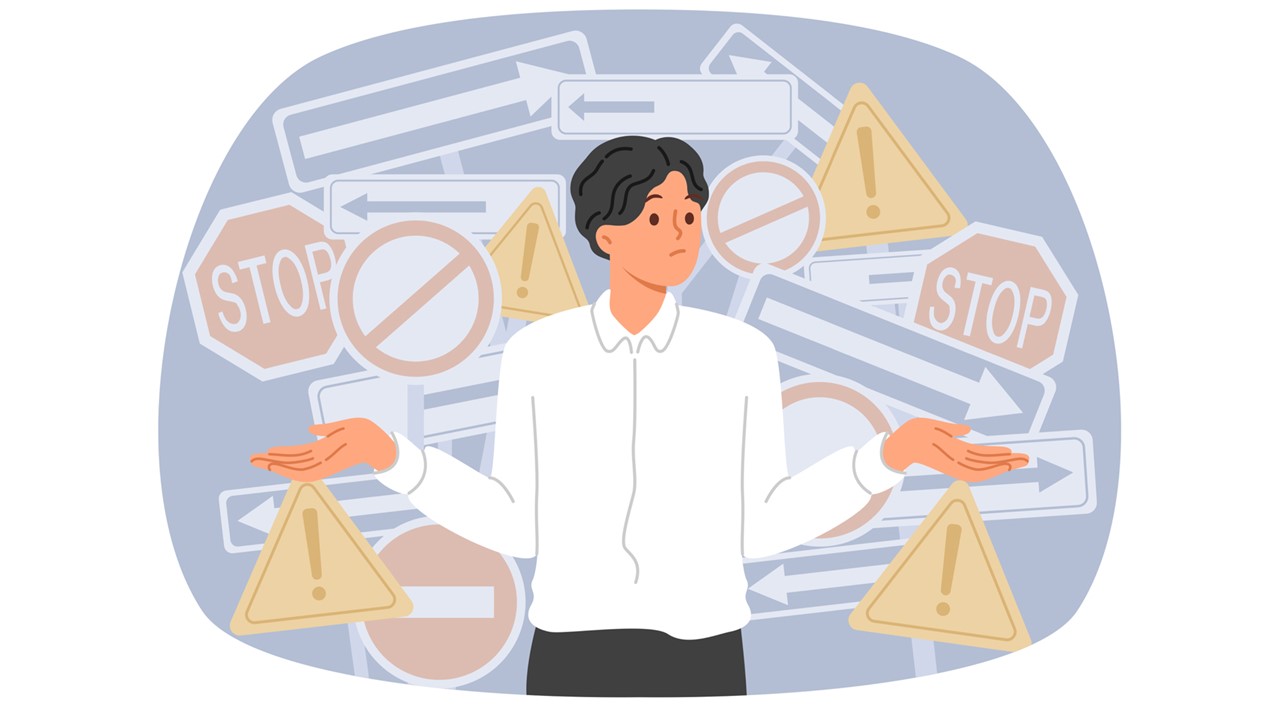
Thesis
All organizations, both public and private, have “stupid rules,” and local government is no exception. These rules anger both residents and employees, causing mistrust or frustration from residents and stifling the creativity of our employees.
Context
Stupid rules can be found in regulations, policies, and ordinances. What are stupid rules? They are rules that restrict common sense thinking, prevent flexibility, and create an overregulated bureaucracy. Some rules are just plain out of date.
In case you don’t believe that local government has stupid rules, I have listed some classics from the United States. A study in 2011 listed a host of such local government rules. By simply googling “local government stupid rules,” you will find similar lists from more than 20 different websites.
• Baldwin Park, California: You can’t ride a bike in a swimming pool.
• Blyth, California: You are not allowed to wear a cowboy hat unless you own two cows.
• Hartford, Connecticut: It is illegal to cross the street while walking on your hands.
• Sarasota, Florida: It is illegal to sing in a public place while attired in a bathing suit.
• Marietta, Georgia: It is illegal to spit from a car but OK to spit from a truck.
• Las Vegas, Nevada: It is illegal to pawn your dentures.
• Mesquite, Texas: It is illegal for kids to have unusual haircuts.
• Nicholas County, West Virginia: Clergy cannot tell a joke or funny story from the pulpit on Sunday.
• Saint Croix, Wisconsin: Women are not allowed to wear red in public.
• Brooklyn, New York: Donkeys are not allowed to sleep in bathtubs.
Although these rules are incredibly funny, many of our stupid rules are confining, controlling, and restricting, without corresponding benefits either to residents or employees.
How Did We Get These Stupid Rules?
Distrust is the root cause of most of our stupid rules, whether it is distrust that our residents will do the right thing or distrust of our employees to act like mature adults. Under the umbrella of distrust, there are several reasons that stupid rules have been enacted:
1. Historical Rules from Another Time
Some of our stupid rules were enacted long ago during a very different time. These rules could well have been silly then, but certainly are now.
2. Political Pressure
Elected officials and city/county leaders often experience a loud and persistent constituency demanding that something be done about a particular issue. When an organization caves into such a group’s demand, there are often unintended negative consequences. Many times, the rule is not liked by the majority of our residents or employees.
3. Gotcha
Occasionally a local government will try to discipline an employee for a negligent or careless action. The union or the employee confronts the organization and protests by saying: Show me the rule I violated! Many organizations panic at this point and promptly develop a rule to handle this singular situation. These organizations are establishing rules based on the actions of marginal employees, thereby insulting their best employees. Instead, the organization should have disciplined or fired these marginal employees.
4. Rules Lead to More Endless Rules
As soon as you make rules that state what someone can or can’t do, you open yourself up to trying to close every loophole. This leads to an endless and wasteful process that often causes more stupid rules. The preferred and sensible alternative is to establish “guidelines” or “guiding principles” that regulate behavior, not hard and fast rules.
5. Fear, Risk Aversion, Overly Cautious, and Lack of Courage
Local government is often too concerned that something will go wrong or someone will make a mistake. We are overly afraid of losing control or getting criticized. (Remember, you can’t be criticized if you allow nothing new to happen.) We also worry too much about possible legal action, regardless of how remote that possibility might be. I have encountered numerous situations where an organization’s legal counsel is exceedingly cautious. They interpret laws in a very risk-averse framework, causing local government to develop more stupid rules.
6. What If Something Goes Wrong?
Many stupid rules are written by “staff” versus “line” employees (i.e., human resources, finance, purchasing, compliance, etc.) Many staff employees think their job is to write and enforce rules so nothing bad can ever happen. This is completely wrong! Their role should be to provide common sense guidelines that allow the rest of the organization to get s**t done.
What Are the Organizational Impacts of Stupid Rules?
Stupid rules demoralize our good employees and anger residents. Gallup research shows that 70% of employees in all sectors consider themselves disengaged at work. This is a stunning figure that kills organizational effectiveness.
The World Economic Forum lists six reasons why employees feel disengaged, and “stupid rules” is one of them. Based on research by L. DeHart-Davis, a professor at University of Kansas, the impact of “ineffective rules/policies,” “red tape,” or “stupid rules” on an organization include the following:
- Reduces services to customers.
- Causes management alienation.
- Inhibits creativity and flexibility.
- Reduces entrepreneurial energy.
No city or county can tolerate these negative impacts and be an exceptional organization.
How to Get Rid of Stupid Rules?
First, you must believe you have stupid rules. Second, you need to care that these rules are hurting your organization. Third, you need courage and passion to get rid of them.
If you are not sure if you have stupid rules, ask your frontline employees what rules are stupid, unnecessary, demotivating, or a waste of time. You will get an earful—and a long list. The following are some suggestions for moving forward. (I have done these things and they work!)
• Take all new employees out to lunch. Let them know that one of their tasks is to challenge rules that they think are unnecessary or stupid. As new employees, they are better at this than long-term employees as they haven’t yet been enculturated. Make a point to recognize and reward all employees who call out a stupid or unnecessary rule.
• Email this article to all your employees and challenge them to identify at least one stupid rule. You will be amazed at what you get back.
• Try appointing a temporary “Stupid Rules Elimination Gang.” Put your best and brightest employees from different departments in this gang. Ask them to review stupid rules and recommend the ones to be eliminated. (Don’t do this unless you are willing to take nearly 90% of their recommendations.)
• Use humor to make this process fun. Getting rid of stupid rules will rub a few people the wrong way but it will free up your best employees. Murphy’s Laws are always a good place to start in having fun, including:
- It is impossible to make any rule foolproof because fools are ingenious.
- A rule is written not to inform the reader but to protect the writer.
- A person who cannot lead and won’t follow makes a dandy roadblock and rule maker.
- Given a sufficient number of people and an adequate amount of time you can create insurmountable rules to the most inconsequential ideas.
Closing Thoughts
Most stupid rules are based on an inherent mistrust of employees and residents. These rules damage your organization and create a stagnant culture.
Our bureaucratic local government structure is mired in stupid rules that impede innovation, create fear, encourage inaction, and destroy motivation. Such rules provide cover for marginal employees and kill the motivation of the best and brightest.
Have fun with this! Make a game or competition with employees and residents to weed out stupid rules. Tell your council that this exercise will make the organization leaner, smarter, and less bureaucratic because it will.
It is rare that any project will please all three groups: employees, residents, and your council. This effort will. I again stand ready to assist (free of charge) any organization who asks for my help. Let’s not defend or encourage stupid any longer.
Author’s Note: I will be presenting two “Let’s Think Differently About…” sessions at the ICMA Annual Conference, September 21–24, 2024. Each session will cover different topics. I hope to see you there!

ED EVERETT, ICMA-CM (RETIRED), is a retired city manager (everetted@comcast.net).
New, Reduced Membership Dues
A new, reduced dues rate is available for CAOs/ACAOs, along with additional discounts for those in smaller communities, has been implemented. Learn more and be sure to join or renew today!
